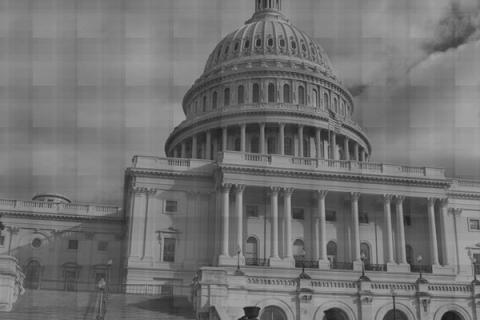Last week, I noted in this column a long-standing paradox of American public opinion. Even in times of record high anti-incumbent sentiment, when a vast majority of Americans state that most members of Congress do not deserve re-election, a majority of Americans nonetheless claim that their own representatives should be re-elected. A Pew Research Center survey released the next day confirmed the sentiment that had been found by Gallup. 67% of those polled by Pew told the pollster that they did not want to see most members of Congress re-elected in 2012, but 50% said that they did in fact want to see their own representative re-elected to the legislature.
The Pew survey provides us with a bit more detail regarding the breakdown of these numbers across partisan lines. Democrats, Republicans and Independents alike agree that most members of Congress should not be re-elected. Understandably, Independents are most critical of the current legislature. 73% of those with no party affiliation said they do not want to see the current Congress re-elected as did 70% of Republicans and 60% of Democrats.
Despite their recognition that most members of Congress should not be re-elected for the good of the country, significant majorities of Democrats and Republicans nonetheless maintain that their own representative is not part of the problem. 57% of Republicans and 60% of Democrats told Pew that they would like to see their member of Congress re-elected. The situation was quite different among Independents. Only 37% of independent-minded Americans said their own representative deserves re-election, and 43%, said their own member does not deserve re-election. Only 28% of Republicans and 25% of Democrats said that their own member of Congress should be voted out of office.
Thus, the contradiction at work here is a strictly bipartisan affair. Intuitively, it makes sense that Independents would be skeptical of the Congress as a whole as well as of their own representative. After all, Independents do not have any representation in the US House of Representatives – every single member of the House is a Democrat or Republican – and the very refusal to identify oneself with either of the ruling parties indicates a rejection of Republican-Democrat party politics.
Unlike Independents, Democrats and Republicans appear incapable of recognizing the part their own representative plays in the failure of the Congress as a whole. But how can we account for this glaring inconsistency in the minds of Democrats and Republicans? Unfortunately, Pew's survey does not appear to have inquired as to the partisan identification of its respondents' representatives. But it stands to reason that Republicans with a Republican representative and Democrats with a Democratic representative would be less critical of their own member of Congress than of the Congress as a whole.
The binary logic of the two-party state would imply that if these voters' representatives were not re-elected, they would be replaced by a representative from the other major party, an outcome which would seem intolerable to most Democrats and Republicans. In this way, the two-party system today ensures a Congress that is disagreeable to a vast majority of Americans, and doubly so for the nation's Independents, who, ironically, outnumber both Democrats and Republicans.
Until Independents recognize the power of their numbers and flex their political muscle at the ballot box in support of alternatives to Republicans and Democrats alike, we will all continue to suffer the consequences of the deadlock characteristic of the reigning two-party state. This may seem like an impossible task, and there is, of course, no lack of Democratic and Republican partisans who would argue to the death that it is. But that is only to be expected. In fact, given the make-up of the current Congress, the election of just a handful of Independent or third party candidates to the Senate and a few dozen to the House would have far-reaching consequences for the redistribution of power away from the Republican and Democratic party machines.

